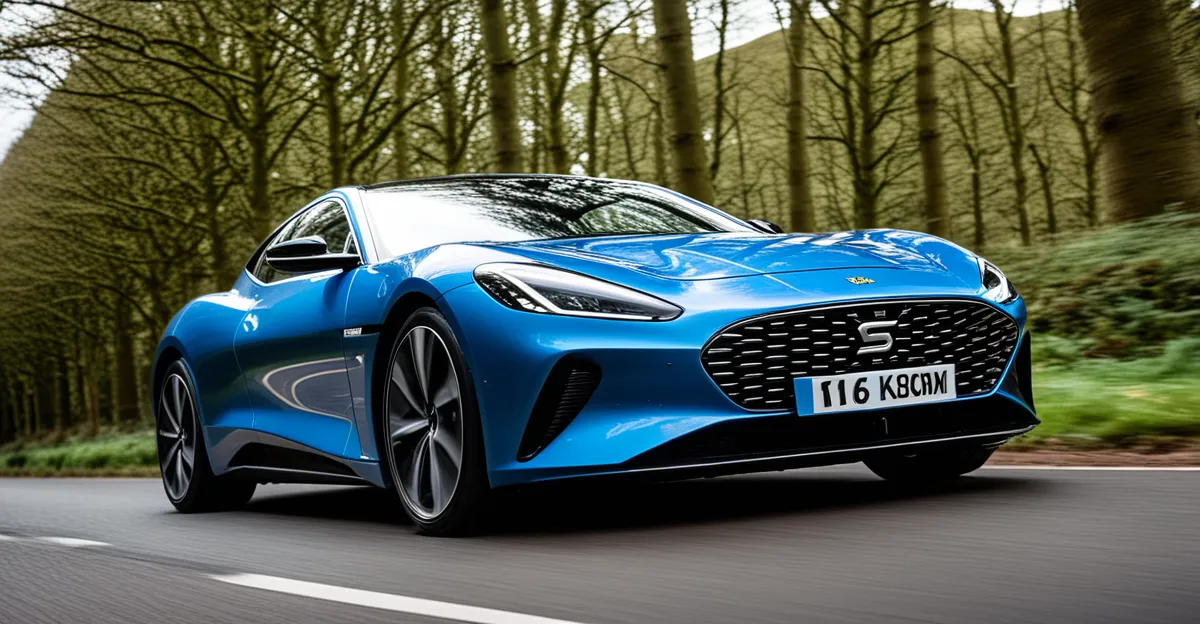Overview of Innovations in the UK Automotive Industry
The UK automotive industry is a vibrant landscape, shaped by significant innovations and emerging trends that continually transform vehicle design and performance. As the market adapts to evolving consumer demands and environmental considerations, several key advancements stand out. These innovations are primarily driven by applied technology aiming to enhance vehicle safety and efficiency.
Technological advancements play a crucial role in enhancing the overall performance and safety of modern vehicles. Notable developments include advanced driver-assistance systems (ADAS), which provide features such as automated braking and lane-keeping assist. These technologies are integral to minimizing human error and reducing accidents, thereby enhancing safety on roads.
This might interest you : What is the significance of UK automotive research and development?
Consumer preferences are also steering the direction of automotive innovations. There is an increasing shift towards vehicles that offer connectivity features, eco-friendliness, and enhanced user experiences. This trend is urging manufacturers to integrate more digital interfaces and sustainable materials in their models, highlighting the importance of keeping up with consumer-driven demands.
Conclusively, the UK automotive landscape is replete with innovations that prioritize technology advancements, respond to real-world safety and performance needs, and align with evolving consumer expectations. As these trends persist, they continue to refine and redefine the industry standards.
In the same genre : What Are the Key Areas for Growth in the UK Automotive Sector?
Electric Vehicles and Infrastructure Development
Electric vehicles (EVs) have become a cornerstone of the UK’s sustainable transportation efforts, reflecting a significant shift in automotive innovations. With a notable increase in EV production and market share, the UK automotive industry is on a transformative path. This evolution is supported by the expansion of EV infrastructure, crucial for widespread adoption.
The growth of charging stations across the nation is facilitating a smoother transition to electric vehicles for consumers, making sustainable choices more accessible. Government initiatives further bolster this shift, promoting the use of electric vehicles through various incentives and policies aimed at reducing carbon emissions.
These advancements underline the industry’s commitment to aligning with UK automotive trends that prioritize environmental sustainability. As the infrastructure continues to develop, it not only supports the growing number of EVs but also enhances the overall sustainable transportation network, ensuring the UK remains a leader in industry advancements focused on eco-friendly solutions.
Autonomous Driving Technology
Advancements in autonomous driving technology are rapidly transforming the automotive sector in the UK. The push towards developing self-driving vehicles illustrates a significant leap in technology advancements, focusing on safety, efficiency, and convenience.
Current State of Autonomous Vehicles
The UK has made considerable strides in the autonomous vehicle landscape. Companies are exploring level 3 and level 4 autonomy, which allows vehicles to be increasingly independent, albeit under specific conditions. These advancements utilise a combination of sensors, cameras, and artificial intelligence to navigate and interpret surroundings.
Major Players in the UK Autonomous Market
Several key players are making waves in the UK’s autonomous driving sector, including tech firms, automotive giants, and start-ups. Companies like Waymo, Argo AI, and Jaguar Land Rover are spearheading efforts, conducting extensive research and trials to optimise self-driving technologies for UK roads.
Regulatory Considerations and Challenges
The deployment of autonomous vehicles in the UK faces regulatory hurdles, as safety remains a top priority. The government is actively working on frameworks to address these challenges and ensure the safe integration of autonomous vehicles into society. Regulations focus on ensuring technology reliability, legal considerations, and public acceptance, influencing the pace of adoption and innovation.
Sustainability and Environmental Impact
The UK automotive industry is increasingly prioritizing automotive sustainability and adopting eco-friendly practices to address environmental concerns. Companies are keenly aware of the need to reduce their carbon footprints, which is driving the adoption of green technology in vehicle production.
One major strategy involves the use of sustainable materials. By integrating materials like recycled metals, bio-based plastics, and natural fibers, manufacturers can significantly reduce environmental impacts and contribute to a more sustainable supply chain. These materials not only decrease the dependency on finite resources but also lessen the energy required for production.
Moreover, green technology is transforming manufacturing processes. Techniques such as water-based paints and energy-efficient production lines help in minimizing emissions. Additionally, the shift towards eco-friendly practices extends to the entire lifecycle of a vehicle, from using renewable energy in production facilities to planning for vehicle recycling or disposal at the end of its life.
Consumer demand for sustainable options is another driving factor. As awareness of environmental issues grows, so does the consumer expectation for greener vehicles, influencing manufacturers to innovate continuously and align industry practices with these preferences. Such changes position the UK as a leader in addressing climate change through progressive automotive sustainability measures.
Manufacturing Innovations and Automation
The UK automotive industry is experiencing a transformative era, driven by manufacturing technology and automation trends. The integration of 3D printing and robotics in production processes is revolutionizing how vehicles are designed and assembled.
3D printing, also known as additive manufacturing, allows for rapid prototyping and customized parts production, significantly reducing lead times and material waste. This technology is particularly beneficial for producing complex components and prototypes that require precision and flexibility. With its capability to produce lighter parts, 3D printing contributes to overall vehicle efficiency by reducing weight.
Robotics are increasingly deployed on assembly lines to enhance efficiency and precision. Automated systems perform repetitive tasks with a level of accuracy that reduces human error, ensuring consistent quality in vehicle manufacturing. This automation not only improves production speed but also cost-effectiveness, enabling manufacturers to meet demand while managing expenses.
Several UK automakers have successfully implemented these manufacturing innovations. For instance, some have introduced collaborative robots—cobots—that work alongside human workers, combining the efficiency of automation with the dexterity and decision-making skills of humans. This synergy in automotive manufacturing underscores the industry’s move towards a more dynamic and adaptable production environment, setting new benchmarks in efficiency and innovation.
Future Projections for the UK Automotive Industry
The UK automotive industry’s prospective trajectory is framed by a myriad of future automotive trends and industry predictions. Experts anticipate remarkable transformations over the next decade, heavily influenced by cutting-edge technologies such as autonomous driving systems and electric vehicle developments. These advancements are expected to not only increase vehicle efficiency and safety but also revolutionize consumer interactions with their vehicles.
In forecasting the innovation outlook, industry leaders foresee greater integration of AI and machine learning technologies, which will enhance autonomous functionalities and connectivity features. As vehicles become more interconnected, they could transition into hubs of personal mobility, offering personalized user experiences and real-time data integration.
Meeting evolving consumer expectations remains a pivotal challenge as demands grow for environmentally friendly and technologically advanced vehicles. Manufacturers must also navigate global market dynamics, where shifts in regulations and competitive landscapes will impact growth strategies. Nonetheless, for the UK automotive sector, these changes present significant opportunities to harness innovation and maintain its position as a trailblazer in industry advancements.






